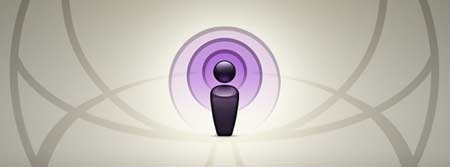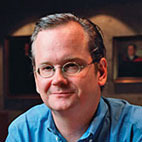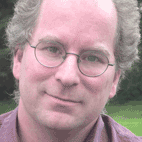Stewart Brand's Blog, page 94
January 5, 2012
Long Now Media Update

WATCH
Rick Prelinger's "Lost Landscapes of San Francisco 6″
There is new media available from our monthly series, the Seminars About Long-term Thinking. Stewart Brand's summaries and audio downloads or podcasts of the talks are free to the public; Long Now members can view HD video of the Seminars and comment on them.







The Expanding Frontiers of Computing
Advances in computing technology have led to increasingly powerful devices – a cell phone can now do what early desktop computers did not even approximate. But these developments have largely been in the form of devices, objects made of silicon and plastic. Stanford bioengineering professor Drew Endy imagines, in a New York Times article, another frontier for computing, where computers with even a tiny amount of processing power would be useful.
…what if such computers could be installed inside every cell of your body? What if these computers were used to keep track of how many times each of your cells divided, forming the basis of systems that could track and control aging, development and cancer?
In his 02008 talk in The Long Now Foundation's SALT series, Endy begins: "I want to develop tools that make biology easy to engineer." While his article mentions that he and his colleagues have not yet been able to program a "genetically encoded eight-bit counter," research does suggest that it is possible.
So the future of computing need not only be a question of putting people and things together with ubiquitous silicon computers. The future will be much richer if we can imagine new modes of computing in new places and with new materials — and then find ways to bring those new modes to life.







December 31, 2011
100 Years in 10 Minutes
Happy new year to all…
derDon1234 created a compilation featuring some of the important events of the last 100 years (2911-1011) in 10 minutes.
via Laughing Squid, The Awesomer, BuzzFeed & MPViral.com







December 29, 2011
Charter City, Honduras
In 02009, economist Paul Romer presented to the Seminars About Long-term Thinking his idea for Charter Cities. Modeled on Hong Kong but stripped of the colonialism (ideally, anyway), Charter Cities are meant to bring the agility and creativity of start-ups to the world of governance.
The Economist recently published an article about a budding Charter City in Honduras:
In a nutshell, the Honduran government wants to create what amounts to internal start-ups—quasi-independent city-states that begin with a clean slate and are then overseen by outside experts. They will have their own government, write their own laws, manage their own currency and, eventually, hold their own elections.
This year the Honduran legislature has taken the first big steps towards the creation of what it called "special development regions". It has passed a constitutional amendment making them possible and approved a "constitutional statute" that creates their autonomous legal framework.
A fair share of criticism is already being leveled:
And democracy will be introduced gradually. Only when the transparency commission deems that the time is ripe will citizens be able to elect the members of the "normative councils"—in effect, local parliaments.
This aspect of the plan is just one of those attracting heated criticism. Some find the explicit (if temporary) rejection of democracy repellent. Others detect a whiff of neocolonialism: gimmicks dreamed up in rich countries being foisted on poor ones.
These are early, preliminary steps and it will be many years before major changes take hold, but Mr. Romer and others are paying close attention to the implementation. Listen to Mr. Romer's Long Now Seminar to see why he thinks it can work.







December 20, 2011
Lawrence Lessig Ticket Info
The Long Now Foundation's monthly
Seminars About Long-term Thinking

Lawrence Lessig on "How Money Corrupts Congress and a Plan to Stop It"
TICKETS
Tuesday January 17, 02012 at 7:30pm Novellus Theater at YBCA
Long Now Members can reserve 2 seats, join today! • General Tickets $10
About this Seminar:
A dazzlingly incisive presenter, Lawrence Lessig specializes in identifying deep systemic problems in public process (such as copyright malfunction and Congressional dysfunction) and then showing how they can be cured. Currently he is bearing down on the corruption of Congress by the practice of private funding for public elections through campaign contributions. He writes: "The dependency of modern campaign finance is the single most important cause of the bankruptcy of Congress. Fixing this bankruptcy is the single most important reform effort that Americans face just now." As he did with helping fix copyright problems via Creative Commons, he has a plan for reforming elections to reestablish Congressional trust and effectiveness. (Public trust in Congress is currently at 12%.)
Lessig is director of the Edmond J. Safra Foundation Center for Ethics at Harvard University and author of Republic, Lost (2011) and Code and Other Laws of Cyberspace (2000 and 2006).
Twitter - up to the minute info on tickets and events
Long Now Blog – daily updates on events and ideas
Facebook – stay in touch through our fan page
Long Now Meetups - join one or start your own







December 14, 2011
Investing in a Singularity
The math governing compound interest offers an enticing proposition to investors with patience and an eye for the distant future. A great piece in Lapham's Quarterly surveys this siren's call and some of the characters, fortunes and court cases wrecked on its shores:
'A few years before [Benjamin] Franklin drafted his will, philosopher Richard Price rhapsodized in a sober treatise on the national debt, "One penny, put out at our Savior's birth to 5 percent compound interest, would, in the present year 1781, have increased to a greater sum than would be contained in two hundred millions of earths, all solid gold.'
Thanks, Kurt!







December 12, 2011
Long Now Media Update

WATCH
Brewster Kahle's "Universal Access to All Knowledge"
There is new media available from our monthly series, the Seminars About Long-term Thinking. Stewart Brand's summaries and audio downloads or podcasts of the talks are free to the public; Long Now members can view HD video of the Seminars and comment on them.







December 2, 2011
Long Now Media Update

LISTEN
(downloads tab)
Brewster Kahle's "Universal Access to All Knowledge"
There is new media available from our monthly series, the Seminars About Long-term Thinking. Stewart Brand's summaries and audio downloads or podcasts of the talks are free to the public; Long Now members can view HD video of the Seminars and comment on them.







December 1, 2011
Brewster Kahle, "Universal Access to All Knowledge"
All knowledge, to all people, for all time, for free
A Summary by Stewart Brand
Universal access to all knowledge, Kahle declared, will be one of humanity's greatest achievements. We are already well on the way. "We're building the Library of Alexandria, version 2. We can one-up the Greeks!"
Start with what the ancient library had—books. The Internet Library already has 3 million books digitized. With its Scribe Book Scanner robots—29 of them around the world—they're churning out a thousand books a day digitized into every handy ebook format, including robot-audio for the blind and dyslexic. Even modern heavily copyrighted books are being made available for free as lending-library ebooks you can borrow from physical libraries—100,000 such books so far. (Kahle announced that every citizen of California is now eligible to borrow online from the Oakland Library's "ePort.")
As for music, Kahle noted that the 2-3 million records ever made are intensely litigated, so the Internet Archive offered music makers free unlimited storage of their works forever, and the music poured in. The Archive audio collection has 100,000 concerts so far (including all the Grateful Dead) and a million recordings, with three new bands every day uploading.
Moving images. The 150,000 commercial movies ever made are tightly controlled, but 2 million other films are readily available and fascinating—600,000 of them are accessible in the Archive already. In the year 2000, without asking anyone's permission, the Internet Archive started recording 20 channels of TV all day, every day. When 9/11 happened, they were able to assemble an online archive of TV news coverage all that week from around the world ("TV comes with a point of view!") and make it available just a month after the event on Oct. 11, 2001.
The Web itself. When the Internet Archive began in 1996, there were just 30 million web pages. Now the Wayback Machine copies every page of every website every two months and makes them time-searchable from its 6-petabyte database of 150 billion pages. It has 500,000 users a day making 6,000 queries a second.
"What is the Library of Alexandria most famous for?" Kahle asked. "For burning! It's all gone!" To maintain digital archives, they have to be used and loved, with every byte migrated forward into new media evey five years. For backup, the whole Internet Archive is mirrored at the new Bibliotheca Alexadrina in Egypt and in Amsterdam. ("So our earthquake zone archive is backed up in the turbulent Mideast and a flood zone. I won't sleep well until there are five or six backup sites.")
Speaking of institutional longevity, Kahle noted during the Q & A that nonprofits demonstrably live much longer than businesses. It might be it's because they have softer edges, he surmised, or that they're free of the grow-or-die demands of commercial competition. Whatever the cause, they are proliferating.
– Stewart Brand
[If you like these SALT talk summaries, all 100 or so of them are collected in Kindle format for $3, available here.]







November 22, 2011
Time

click image above to enlarge
The 10,000 Year Clock is mentioned on the November 28th cover and listed as one of the 50 best inventions of the year by Time Magazine.







Stewart Brand's Blog
- Stewart Brand's profile
- 291 followers







